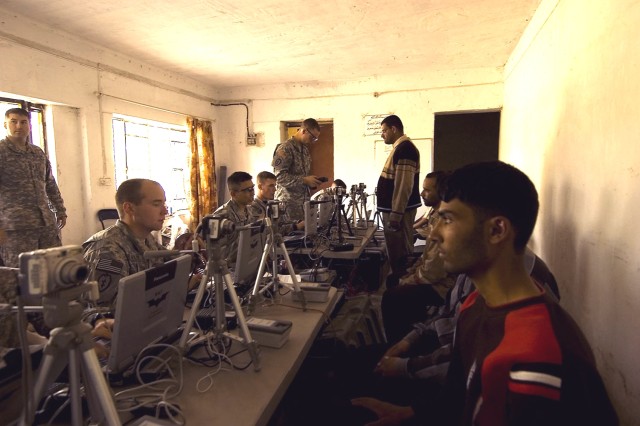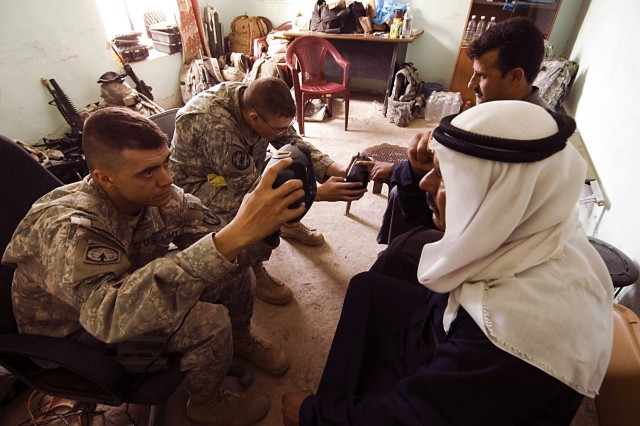CAMP TAJI, Iraq (Army News Service, March 12, 2008) - Sons of Iraq (Abna al Iraq) volunteers gathered outside a crowded council building in the village of Abayachi, north of Baghdad March 2 to get their pictures taken and fingerprints cataloged in preparation for their first pay day.
Multi-National Division - Baghdad Soldiers from 2nd Stryker Brigade Combat Team "Warrior," 25th Infantry Division, set up shop inside the local council building for three days, beginning Feb. 29, to process SOI volunteers before they received their first payment.
"We paid about $275,000 over five contracts, and that money is used to pay SOIs, who man checkpoints to provide road security," said Capt. John Cooper, battalion adjutant, who said the Soldiers planned the first pay day with the town leaders for several months.
With the newly negotiated contracts for payment, the Iraqi citizens will be able to help their country in more ways than just pulling security.
"One way it benefits them is it restores confidence they may have lost in the U.S. Army," Cooper said. "We're working with them, and we're having positive interactions with them, so we're building friendships and gaining allies.
"Another way, I would say, that it helps the local populace, is by stimulating their economy with cash that we pay them: anywhere from $250 to $350 a month," he said.
To complete the identification process, the Soldiers also set up Biometrics Automated Tool System and Handheld Interagency Identification Detection Equipment stations. The two identification systems processed the Iraqi volunteers into government databases for future reference, and gave them authentic identification cards and validated their status in the organization.
"We're now getting all their biometrics data, like a facial photo, iris scans and their fingerprints," said 1st Lt. James Grossman, a fire support officer.
Three days of waiting, two photos and 10 fingerprints later, more than 800 Iraqis got to go home with new friends, a secure job and a few more dollars in their pockets to get them by until their next pay day.
"I think it went great. The company had all the security they needed, they were searching people before they came in and they kept things organized," said Cooper.
While the U.S. troops took the lead in getting the operation done, the Soldiers said security provided by the Iraqi Security Forces significantly contributed to the success of the mission.
"We couldn't have done this without the help of the (Iraqi Police) and the (Iraqi Army) working outside at the check points," said Grossman.
(Sgt. Jerome Bishop serves with the 2nd Stryker BCT Public Affairs Office.)






Social Sharing